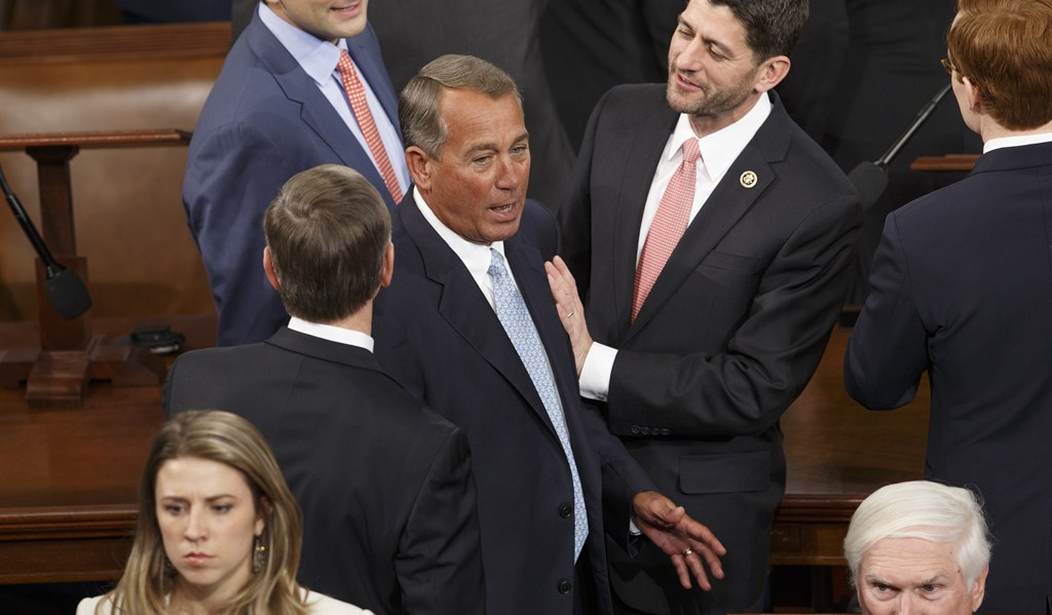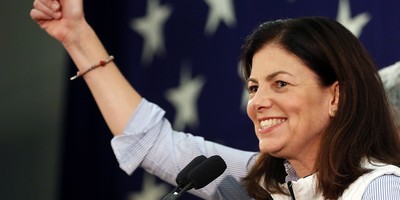WASHINGTON -- Republicans took control of Congress this week, mindful that their job performance over the next two years is their party's path to the presidency in 2016.
That is what's really at stake as House and Senate GOP leaders get down to business in what is shaping up to be a political minefield of legislative statecraft. The Republicans know what it takes to get America back on track, but they face fierce opposition from Democrats, President Obama's veto pen and the liberal network news media.
The American people, according to the polls, want the Congress to get things done, and they're tired of legislative gridlock and six years of political infighting. Why can't they work together for the good of the country and stop all this bickering? the leftist media mavens ask.
What has gotten lost in the dense political fog of policy battles throughout Obama's presidency is that the fight is between good policy that gets our country moving again and bad policy that's given us an underperforming, slow-growth, wage-stagnant economy over the past six years.
Obama and the Democrats want to raise income taxes and impose ever more government regulations that slow economic growth, reduce business start-ups, kill jobs and lower incomes that have been flat since 2007.
Republicans want to lower tax rates to encourage new job-creating, capital investment, as we did in the 1980s and 1990s under both Republican and Democratic presidents.
This isn't a fight to foster gridlock; it's a battle for common-sense, pro-growth policies versus costly, big-government policies that have irreparably hurt millions of ordinary Americans.
The voters settled that fight last November by turning full control of Congress over to the Republicans, believing they could handle economic policy better than a bunch of Democrats who believe that tax rates are too low as it is.
Recommended
These issues remain front and center in the minds of many Americans. The Gallup Poll released numbers last week that said the economy, unemployment and jobs were still among their chief concerns, closely behind "poor government leadership."
The voters expressed their unhappiness with Obama's inept leadership in the only way they could in the midterm congressional elections. They put the Republicans fully in charge of Capitol Hill -- a strong vote of confidence in the GOP's economic growth message and an embarrassing rejection of Obama's harmful tax-and-spend policies.
But with two years remaining in the president's second term, we continue to have divided government. Obama isn't showing any signs of backing away from his policies, and the Republicans have just won a convincing endorsement of their agenda.
Cynics would say that this is a poisonous brew for two more years of gridlock. But as Congress opened for business on Tuesday, the broad political outlines of the GOP's strategy began to emerge. It calls for a very "doable" legislative agenda on one side, and a separate list of "veto bait" reforms to show voters what Congress will enact if a Republican president sits at the other end of Pennsylvania Avenue in 2017.
Senate Majority Leader Mitch McConnell, who is working closely with House Speaker John Boehner, believes there are at least three areas where agreement can be worked out with Obama: a pro-jobs, free-trade agreement to boost U.S. exports; a revenue-neutral overhaul of the tax code that lowers tax rates on businesses and investors to spur higher levels of job creation; and repairing our decaying infrastructure, financed by deep spending cuts in a waste-ridden, bloated budget.
These are, at a minimum, areas where Republicans can come to some agreement on economic growth initiatives with a lame-duck president who is desperate to add some achievements to his final, bungling years in office.
House Republicans had hoped to pass a tax reform bill last year. But Obama killed any chance of that happening in the Senate when he chose Senate Finance Committee Chairman Max Baucus to be his ambassador to China at a time when a bipartisan tax overhaul deal was in the works.
Obama has given only lip service to tax reform, but in a presidency that has little hope of enacting anything in this GOP-run Congress, he has sent signals that he's warming to the idea.
McConnell held a largely secret Oval Office meeting with Obama after Election Day to sound him out on three of the issues in the GOP's emerging agenda. Insiders say that there are prospects for a deal that would cleanse the dysfunctional tax code of loopholes and lower corporate rates, which are the highest in the industrialized world.
Then there are the veto-bait shots across the bow that have no chance of enactment, but will stake out positions that will be the chief planks in the GOP's 2016 presidential platform.
Among the targets: Cleansing Obamacare of its worst features, including all of its business regulations, all of the tax penalties, and the rigid medical mandates that have driven up premiums for millions of Americans.
And there likely will be a budget rider to rescind Obama's executive orders on immigration policy on the grounds that only Congress can write immigration laws.
There will also be other bills over the two-year election cycle to force Democrats to vote on measures they might have a tough time explaining to their constituents.
With 54 Republicans in McConnell's caucus, there is no chance of obtaining the 67 votes needed to override Obama's veto. But McConnell thinks that "it wouldn't take a whole lot of Democrats" to get the 60 votes needed to bring such bills up for a vote, send them to Obama's desk and dare him to veto politically popular legislation.
The list of vetoes could be one of the GOP's biggest weapons in an election year when the voters will be fed up with a do-nothing president and ready for change.
Let's see how Hillary Clinton deals with that in the 2016 presidential debates, if she can.

























Join the conversation as a VIP Member